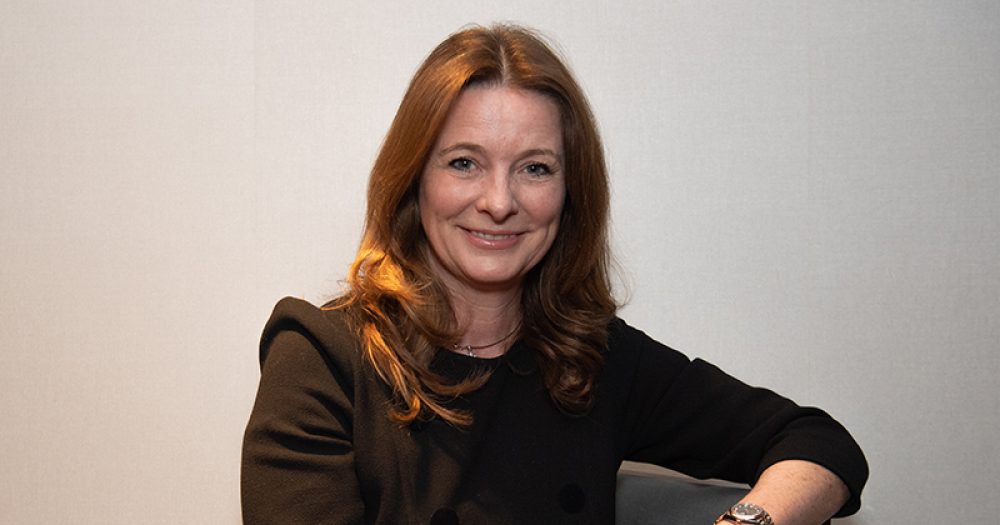Education secretary Gillian Keegan faced her first education committee grilling today.
She answered questions about apprenticeship quality, the possibility of teaching apprenticeships, and plans for a new British Baccalaureate.
Here’s what we learned
‘Pragmatic’ on a British Baccalaureate
In October, The Times reported that prime minister Rishi Sunak was keen on introducing a British Baccalaureate as part of plans to reform the education system.
But no further details have been released.
Keegan suggested today that with only another two years of this parliament, the baccalaureate may not be coming imminently, despite being open to the idea.
“We have to figure out where we are as well because we have got two years possibly left, so throwing everything up in the air is not as good idea either. We need to have an open pragmatic mind,” she said.
She did however confirm that discussions were focused a lot around youngsters studying maths up to the age of 18, one of the key proposals within the British Baccalaureate.
Schools bill scrapped – so where does that leave FE teacher misconduct powers?
Keegan confirmed the schools bill would not progress in its current form, but said certain elements would be prioritised as the government considers its legislative programme.
That may not seem like much relevance to the further education sector, but one element within the bill was a proposal for teachers at further education colleges and independent training providers to be covered by teacher misconduct regulations.
In April, it emerged that the Department for Education intended to extend the Teacher Regulation Agency’s powers to post-16 education and training “when a suitable legislative opportunity becomes available”.
The scrapping of the remainder of the schools bill raises questions over whether that will now happen.
Following the hearing, the DfE told FE Week it “remains committed” to measures “improvements in teacher regulation”, which will still be “progressed when the legislative timetable allows”.
Teaching apprenticeships back on the table
While falling short of a firm commitment, Keegan confirmed she had asked her department to investigate potential apprenticeship routes for undergraduates to get into teaching.
A postgraduate teaching apprenticeship currently exists, but there has little success to date on an undergraduate pathway.
“I am always keen to look at what more we can do, and I want them to look maybe at an apprenticeship for undergraduates, maths and physics teaching apprenticeships, I have asked the department to look into that,” she said.
“Is that something that we could develop, would that broaden the pipeline? Would that allow people who had maybe had a career in engineering and might want to teach as a second career, or indeed want to earn and learn at the same time and avoid the student debt and loan etc?”
In addition, education committee chair Robin Walker urged the department to liaise with government colleagues on potentially bringing former armed forces personnel into retraining as teachers, to which Keegan said “that could indeed be an apprenticeship model”.
Apprenticeship achievement rate target remains
Back in June, then-skills minister Alex Burghart set a new “ambitious” target for an overall 67 per cent achievement rate on apprenticeship standards by 2025 – a 15 percentage point increase on the current rate.
While continuing to be an issue for the sector amid a 47 per cent drop out rate, fears were raised at the time that the target may be unachievable.
Keegan re-iterated that commitment to MPs after being questioned on the quality of apprenticeship training.
She said: “We want to see increased achievement rates, so 67 per cent by the end of 2024/25 is what we have set, and it is 52 per cent for standards at the moment.”
More IoT-style collaboration?
Keegan told MPs the government will push for more collaboration between further and higher education institutions in the future.
She referenced the Institutes of Technology model – tie-ups between businesses, universities and colleges to deliver higher technical qualifications.
The first 12 of those have already been established with a further nine now being formed following an announcement in December last year.
Keegan said those sorts of collaborations are “absolutely the way to go” but she was “not really hung up on the structures” of what those sorts of partnerships could look like.
She added: “They are really leading in key critical skills areas, and I think collaborations between universities, FE colleges and businesses is where a lot more effort is being made.”
More medical apprenticeships
The apprenticeship route is already well-established for many healthcare roles, but Keegan said she wanted “work in considering whether we can do a master’s degree, higher level apprenticeships also to facilitate more routes”.
Keegan said there were around 70 currently, and Health Education England in the summer announced a medical doctor apprenticeship route will be launched from September 2023 to make entry into the profession more accessible.









Your thoughts